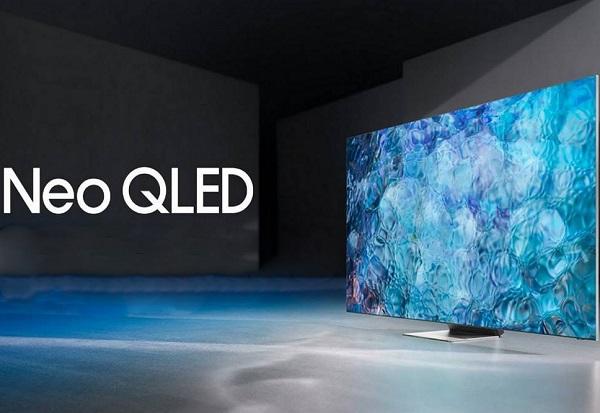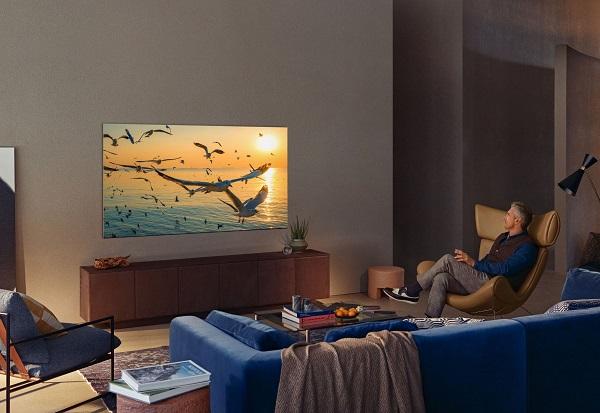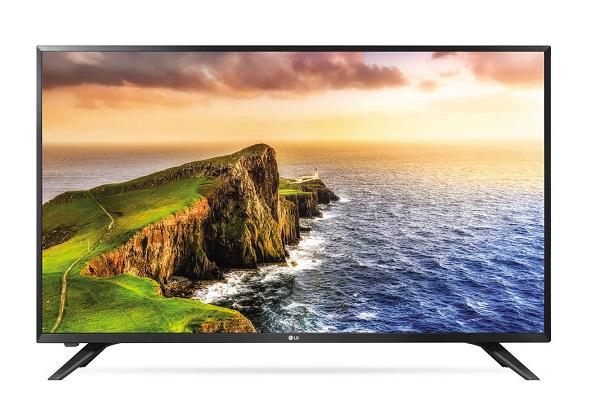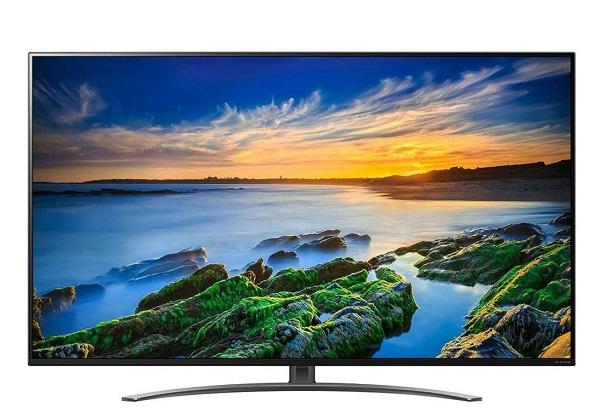Which TV to choose: LG or Samsung, comparison of main characteristics
Content:
LG and Samsung are South Korean companies specializing in the production of electronics and household appliances. Brands have been competing with each other for many years, each has achieved high results, and it is quite difficult to understand which TV is better: LG or Samsung. Competition helps to develop and constantly improve technology. Brand models differ little in design, and the technical characteristics will be discussed in more detail in the article.
LG TVs
The latest models of LG TVs are equipped with the α7 Gen3 chip, having comparable characteristics to its main competitor in a number of indicators - upscaling, scene dynamics, audio control. The main difference is the special NanoCell coating, and LG TVs use the WebOS operating system. This OS is easy to use, intuitive, has a clear interface, and supports a wide range of applications. The NanoCell coating provides a more colorful picture, but no better than its direct competitor Samsung.
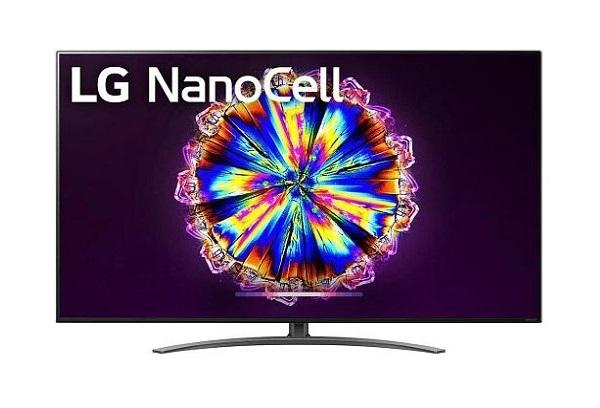
Users rarely encounter problems recognizing media files. In some videos, subtitles may not be displayed correctly, this is the main drawback that users complain about.The main disadvantage of LG TVs is the DLNA operation. If the hard drive is not connected to the router, 4K video with high bitrate will not play or will require constant re-downloads. All modern models come with HDR support, and the latest models come with HDR 10 Pro.
Samsung TVs
Samsung equips its new models with the Neo Quantum 4K chip with the fastest possible response, an image scaling function (upscaling) to 4K format and a function for complete immersion in what is happening on the screen.
The top models are distinguished by a frameless design and a laconic appearance. Equipped with a variety of functions, they support display refresh rates up to 100 Hz. However, this option is available when the video resolution is 1920x1080 pixels. When working with 4K content, the frequency drops to 50-60 frames per second.
Samsung uses Tizen, an open operating system designed for a wide range of devices. This software controls the Smart TV function and provides additional display adjustment options. One of these is the “transparency” effect, which allows the TV to fit more organically into the interior.
The Ambient function allows you to put the TV into standby mode, displaying various useful information on the screen, for example, showing the time. The background can be set to a photo of the wall behind the device itself or any other selected image. Samsung TVs support almost all existing video formats, sometimes problems may arise with outdated ones, such as DivX and BD images.
What is the difference between brands
Most buyers consider image quality to be the main selection criterion.Now it is Samsung that is developing faster than its competitor and has a wide model line, having an assortment in all price categories - cheap, mid-range, premium.
Products from LG are shifting to the segment of expensive high-resolution LEDs. Separately, it is worth mentioning the convenient stands for LG TVs; it can be semicircular and swivel. Samsung offers the following forms:
- square;
- oval;
- fixed.
Samsung models with the Smart TV function are distinguished by rich functionality, graphics, build quality, and operation without interruptions. Smart TV systems from Samsung provide support for a large number of free IPTV applications, unlike similar models from LG. If we talk about Smart TV, we can talk about complete parity.
Comparison table of main characteristics
As for price, it is quite difficult to give preference to one or another manufacturer. In the budget segment, Samsung is the leader, but LG models will have a wider range of capabilities. Both of these manufacturers correspond to their price category. The price of the device depends on the size, technical parameters, and set of options. In the same category you can find similar models from both of these Korean companies.
| Options | LG | Samsung |
| Price, rubles | 24000-500000 | 15000-500000 |
| Characteristics | Diagonal 40-203 cm, Refresh rate 50-120 Hz, Smart TV support, Smart Home ecosystem support, display type LED, NanoCell, OLED, WebOS/Android OS, 1-2 year warranty | Diagonal 40-203 cm, Refresh rate 60-100 Hz, Smart TV support, Smart Home ecosystem support, LED display type, QLED, Tizen OS, 1 year warranty |
| Advantages | LED backlight, high definition, image detail | Convenient Smart TV, good backlight quality, fast processor speed |
| Flaws | There are few budget models, the back wall of the plastic cases bends slightly at the mounting points, “Banding” effect of the OLED matrix | The price is somewhat high relative to the quality, color rendering is inferior to LGI |
Pros and cons of LG
The most important advantage is OLED technology. LG itself is one of the few manufacturing companies of matrices with independently illuminated pixels. In 2021, newer displays with OLED evo backlight appeared. According to the company, the panels were optimized by adding a new layer to improve the elements and increase their technical characteristics.
The main disadvantages of LG products are:
- insufficient image volume;
- reflection of light on the display.
Main advantages:
- speed of signal processing;
- wide viewing angle;
- depth of color rendering due to bright backlighting;
- The latest OLED technology.
The products from this company cannot be called too expensive; the price is quite consistent with its characteristics and quality. However, the famous OLED matrices produced by LG, according to user reviews, often suffer from uneven backlighting on dark and dark gray backgrounds. Various stripes and artifacts may appear on a dark (not black) background, the so-called “Banding”.
Pros and cons of Samsung
This high-tech Korean brand has introduced a super-thin AirSlim for budget and mid-range models, and it also has another advantage of Neo QLED.
The screen with quantum dots or Quantum Dot is equipped with a new modern backlight based on diodes 40 times smaller than its other analogues. This makes it possible to significantly reduce the thickness of the TV.
The main disadvantages of Samsung TVs are the following:
- worse color rendition compared to LG;
- inappropriate price/quality.
If we talk about the advantages, there are several of them:
- better lighting;
- rich color rendering;
- depth of colors;
- convenient to use Smart TV;
- a large number of free applications;
- fast operating speed thanks to a high-performance processor.
The company is constantly working to increase the diagonal of its TVs and expand the capabilities of 4K UHD HDR.
What is better to choose
If we compare TVs from Samsung and LG, first of all it is necessary to say that they run on different operating systems, have different processors (chips), screen and matrix production technologies, especially in the premium segment. Samsung has Tizen OS, LG has its own WebOS OS.
Budget models from Samsung can be called a better choice than similar LG TVs. This company is more focused on the low-cost segment, which is both an advantage and a disadvantage. Now you can find inexpensive models from Samsung with quantum LED or QLED technology, which LG does not have.
In terms of audio performance, both manufacturers offer 20W models. But according to users, Samsung offers the best sound. This is due to the fact that LG uses plastic as the body material, which muffles the sound.
For a comfortable console game, the size of the TV is not the main criterion. To get a bright picture for such entertainment, the following technical parameters are important:
- response time;
- frame rate;
- TV screen viewing angle;
- screen resolution.
The TV can be controlled not only from the remote control; devices with Wi-Fi support can be used for this. Samsung TV remotes are less likely to cause complaints and complaints.After the failure with the Smart Touch Control model, the company began to take this issue extremely seriously and responsibly.
In terms of price/quality ratio, models from LGI outperform Samsung. With similar technical characteristics, an LG TV will cost slightly less.
Questions and answers
What should you pay attention to when choosing a TV?
- If you have a maximum budget, it is better to buy a model with a 10-bit matrix that supports 4K and HDR formats.
- The new models differ in the picture and the Smart TV system. If these functions are important to the user, it is worth paying a little more and choosing a more advanced model.
- Large diagonals are better suited for larger than average rooms. The minimum distance for a 65-inch TV is 2.6 meters.
- There isn't a lot of content available in 4K at the moment, including broadcast shows and movies. If the user will use cable TV, you should not choose models with 4K support.
Conclusion
Both of these manufacturers keep the quality of their products at a high level and it is impossible to identify an undisputed leader in this segment. However, TVs from LG are in great demand, which is explained by the best price/quality ratio and the presence of organic LED technology. Samsung is interesting for its unique solutions, but it orders the panels themselves with OLED backlighting from its competitor. LG matrices reproduce black colors better, have higher response speed and contrast, but sometimes cannot cope with the banding effect.
